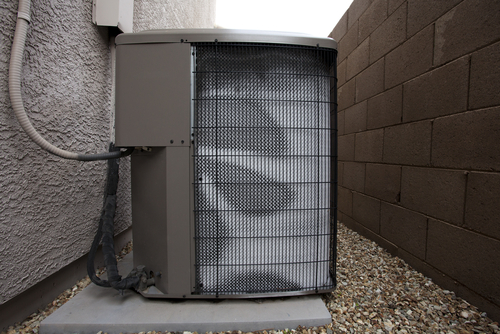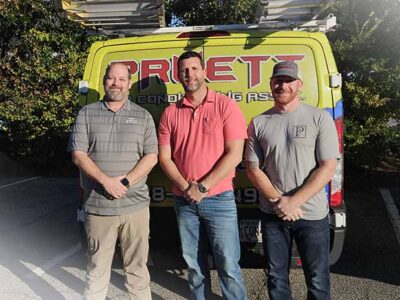
When evaluating the price of an air conditioner replacement, consider both the initial price and the lifetime costs of operating the unit you select. The best deal in one time frame doesn’t necessarily equate to a bargain in the other.
For example, air conditioners with low initial prices often end up costing more to operate due to lower energy efficiency, as well as more to keep running due to poor durability in the long term. On the other hand, a high-efficiency A/C with a steep purchase price may offer lower lifetime costs due to savings on energy expenses and fewer repairs. However, the payback time to compensate for that higher upfront cost may be prohibitively long, depending on your local climate and other issues like the cost of energy.
Choosing the optimum air conditioner replacement really means striking a balance between competing factors to reach the best deal for your financial comfort zone and expected time frame.
Buy for the Long Run
Whatever air conditioner replacement you select, realize that you’ll be living with your choice and paying for it for some time, assuming you continue to own the house. The mean expected service life of a new central A/C today is 15 years. When deciding on an air conditioner replacement, keep in mind you’re making an investment for the future, not merely an impulse buy for here-and-now comfort. This fact alone may alter your perspective on the issue of initial versus lifetime costs.
Initial Price
It’s called the “upfront” price for good reason; It’s the cost that hits you head-on when making an air conditioner replacement purchase. The sticker price of a new air conditioner may or may not have some slack built in, depending on the deal your HVAC contractor is willing to offer. Available rebates or incentives you may qualify for from local, state or federal programs that promote HVAC upgrades may also help reduce the initial price.
Variables that influence the initial cost of an air conditioner replacement include:
- Energy efficiency – This is the primary factor in the sticker price of a new unit. Air conditioner efficiency is rated by its seasonal energy efficiency ratio (SEER). Today’s standard efficiency units must have a minimum SEER rating of 14; high-efficiency air conditioners with SEER ranging above 20 incorporate advanced technology and consume far less energy. The higher the SEER, the more you’ll pay for the unit upfront.
- Quality – As with other technologies, air conditioners made by established name-brand manufacturers with consistent quality control who stand behind their product with a credible warranty cost more than no-name equipment from generic or unknown sources. “Knock-off” units with poor build quality are a good example of an initial bargain that makes a very bad lifetime deal.
Lifetime Costs
Once you’ve paid the initial price and your air conditioner replacement is installed, you begin to experience the lifetime cost of the unit. That may be a recurrent operating expense, repair “surprises” or it may be more abstract, like money you could have saved through lower operating costs had you chosen a more efficient unit.
- SEER rating – Energy efficiency is an ongoing long-run consideration. SEER is a fairly accurate predictor of energy consumption which, in turn, drives monthly operating costs. It’s a fixed number and, while you can downgrade a unit’s efficiency by poor installation and neglected maintenance, you can’t improve upon an air conditioner’s original SEER rating. Over the coming years, the amount you pay monthly to keep your home comfortably cool will be to a large degree locked in by the SEER rating of the unit when it was new.
- Durability – Quality air conditioners from major manufacturers incorporate components engineered for long service. If certain major components like the compressor are substandard and fail after a unit is out of warranty, replacement costs may make continued operation of the air conditioner no longer financially feasible. Early replacement of a unit before its expected service life has expired is always a money-loser.
- Maintenance – To avoid the kind of wear and tear that causes expensive repairs and early replacement, annual maintenance is critical. This isn’t DIY stuff like changing the filter; it requires the expertise and equipment of a qualified HVAC technician. Most manufacturers require a paper trail of annual professional maintenance to keep the warranty terms in force.
Learn more about Pruett Air Conditioning’s air conditioner replacement options, or give us a call today at 478-374-1481 to schedule an appointment for your Eastman area home!
Image Provided by Shutterstock.com

